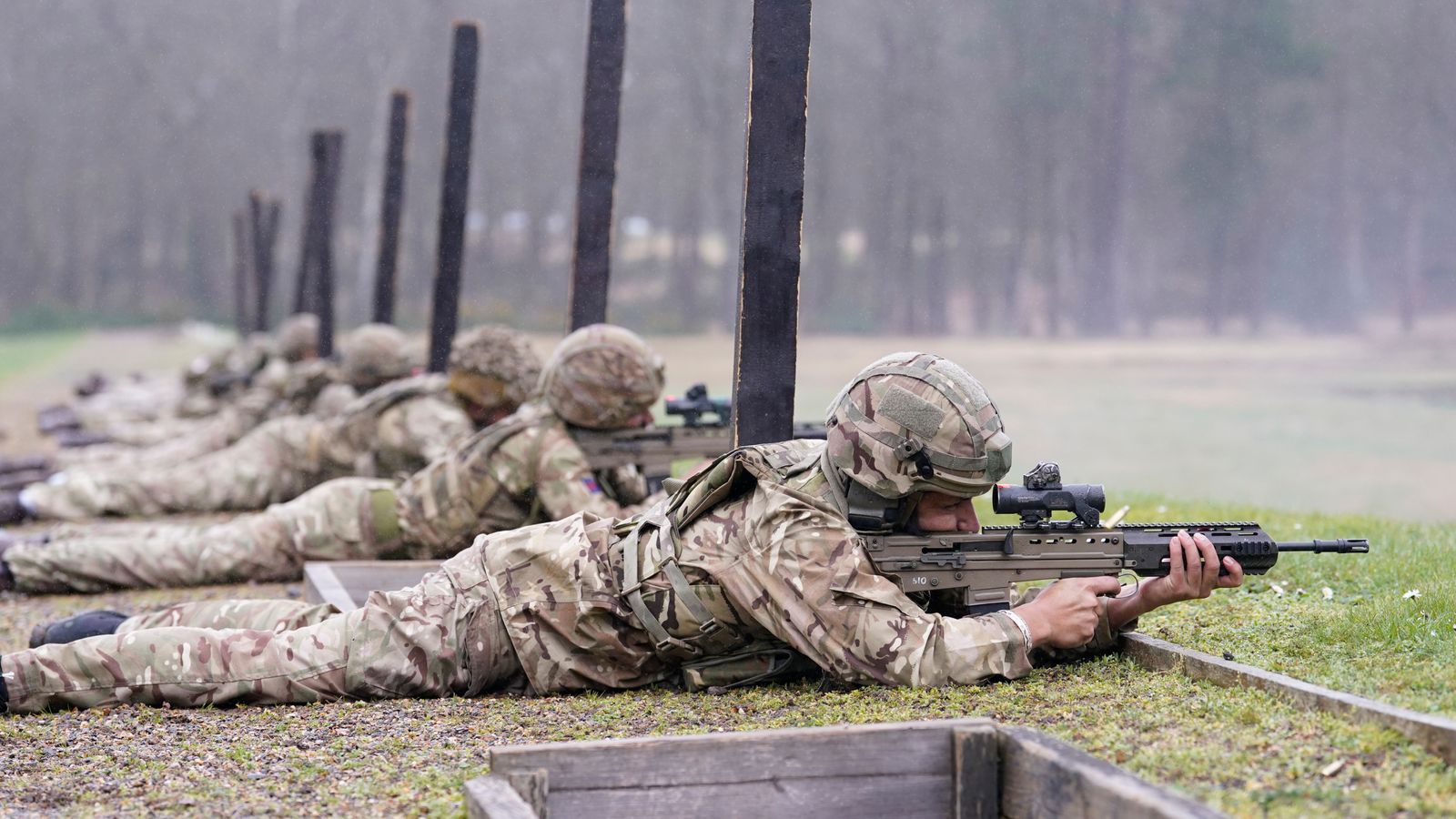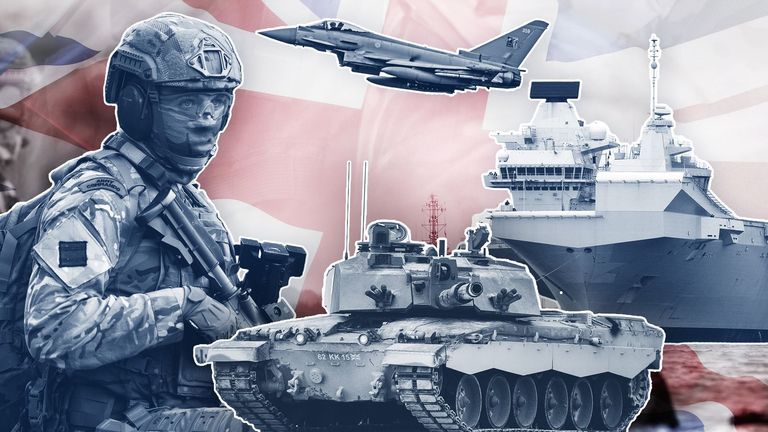The prime minister appears to have had a belated epiphany about the critical importance of defence – and now even National Service.
It was just four months ago that Rishi Sunak’s spokesperson slapped down the outgoing head of the army for advocating the need for civilians to be trained to fight given the dangers of living in what the defence secretary has called “a pre-war world”.
General Sir Patrick Sanders had simply been using a speech to state a blunt reality – war and preparing for war is a whole-nation effort as demonstrated daily by Russia’s invasion of Ukraine, where Ukrainian citizen soldiers are fighting and dying on the frontline.
Read more on Russians winning production war:
Ukrainians forced to pretend in training
Rather than support him, a Downing Street spokesperson at the time said that “hypothetical scenarios” involving possible wars were “not helpful” and ruled out any move towards a conscription model for the military.
Admiral Sir Tony Radakin, the chief of the defence staff, and David Williams, the top civil servant at the Ministry of Defence (MoD), apparently even summoned General Sanders for a dressing down over the remarks.
But the army chief had not been suggesting conscription then – just as the prime minister is not doing so now.
He had simply been talking about the need for civilians to be ready to serve.
Given that context, Mr Sunak’s sudden announcement that he would introduce a new form of National Service for 18-year-olds, including the chance to spend 12 months serving in the armed forces, sent eyebrows within the MoD soaring skyward.
“Deeply cynical,” was the verdict of one insider.
Another told Sky News: “This is a policy surprise to me. I haven’t seen it discussed in the Ministry of Defence.”
The need for greater national resilience is a theme that Sky News has been exploring as part of its series Prepared for War?
We revealed in April that the government has no national plan for the defence of the UK or the mobilisation of its people and industry in a war.
The rallying cry from Mr Sunak for National Service comes after he chose to make defence a central theme of his election campaign even though as prime minister and chancellor he was accused by insiders of pushing back against demands from the military for more funding.
He only finally committed last month to a timeframe for a pledge to lift defence spending to 2.5% of national income from just over 2% at present – saying this would happen by 2030.
Mr Sunak then turned on Sir Keir Starmer, the leader of the Labour party, for failing to give the same guarantee – even though that had previously been his position, too.
The main problem facing either the Conservative or Labour leader when it comes to defence is that repeated cost-saving cuts to the armed forces under both administrations since the end of the Cold War have left the UK weaker.
Russia’s full-scale war in Ukraine, growing threats from China, an increasingly aggressive North Korea, and the potential for war with Iran in the Middle East means the world is more dangerous now than at any time since the Cold War.
Read more:
Teenagers will not be jailed for evading National Service
Adam Boulton: Labour could lose votes on defence
This will force defence to be a priority in terms of actions rather than just words for whoever becomes the next prime minister.
In fact, their first foreign trip will likely be to Washington on 9 July – just four days after taking office – for a major NATO summit against the backdrop of looming US presidential elections and a potential return of Donald Trump to the White House.
Goals for the summit – which will mark 75 years of the alliance – will include a collective bolstering of defences and resilience to deter external threats as well as a need to demonstrate internally to Mr Trump that NATO is value for money.
Given the gravity of the moment, there will be no time for playing politics with defence.



